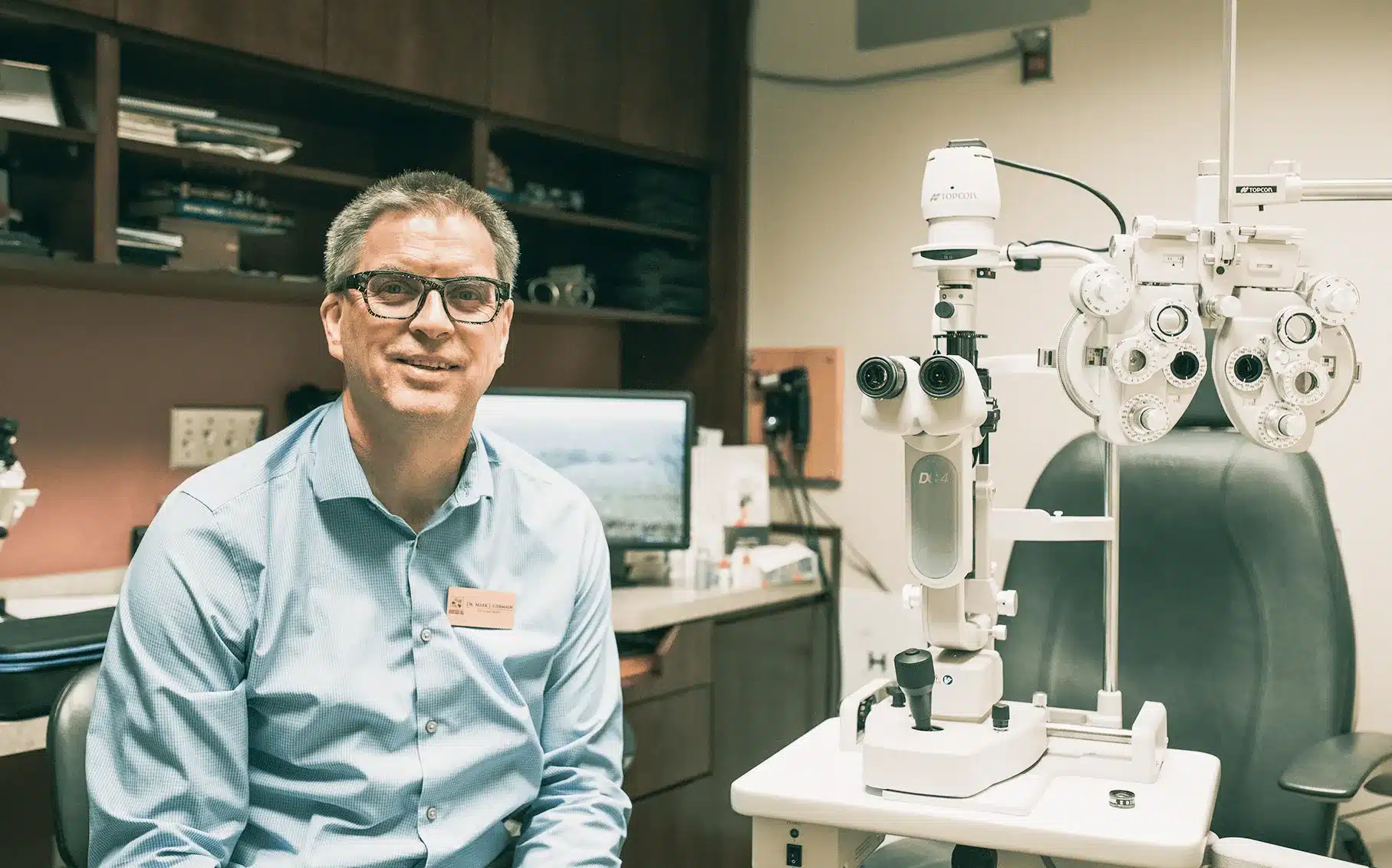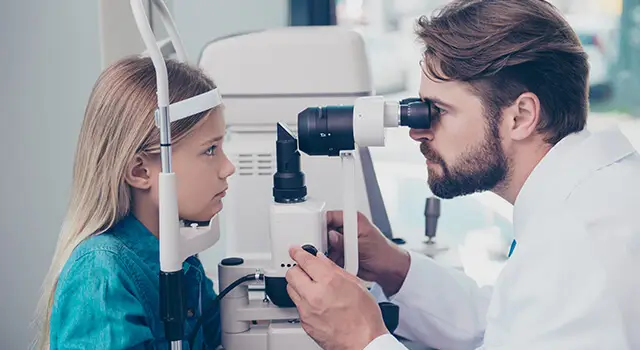Eye Care in Burlington is a highly reputable and sought-after eye care clinic serving the Burlington region for more than a decade. The clinic is committed to providing comprehensive eye care services, ranging from routine eye exams to managing complex eye conditions, using state-of-the-art technology and equipment.
As a professional eye care provider, Eye Care Center Burlington is dedicated to delivering personalized eye care services that meet the unique needs of each patient. From infants to seniors, they understand the importance of maintaining healthy eyesight, and they strive to help patients achieve optimal eye health and vision through early detection and prevention of eye diseases, timely treatments, and ongoing eye care and education.
The team of experienced optometrists and ophthalmologists are highly skilled, knowledgeable, and compassionate, and utilize a patient-centred approach to provide individualized care. They work collaboratively with their patients to create customized treatment plans that are tailored to their specific eye health needs, lifestyle, and budget.
Patients can expect exceptional care in a warm and welcoming environment. Their commitment to excellence, patient satisfaction, and the latest technology and techniques in the field of eye care make Burlington Eye Care the ideal choice for anyone looking for quality eye care services in Burlington.
What is an Eye Care Center Burlington?
An eye care center is a medical facility that specializes in offering professional eye care services to individuals with vision problems. The center typically has certified optometrists, ophthalmologists, and licensed opticians who work together to provide a comprehensive range of eye care services to patients.
Primary Eye Care Burlington is well equipped with state-of-the-art diagnostic and treatment equipment designed to detect and treat various eye conditions. Some of the services offered in these centers include eye exams, contact lens fitting, eyeglasses prescription, cataract surgery, cornea transplant, LASIK surgery, glaucoma screening, and other specialized eye treatments.
How Often Should I Get an Eye Care Exam in Burlington?
It is recommended that individuals undergo a comprehensive Eye Care Exam in Burlington every one to two years. This applies to both adults and children, regardless of age or health status. In some cases, individuals with specific eye conditions or risk factors may require more frequent eye examinations.
For children, it is recommended that they get their first eye exam at six months of age, followed by another exam at three years old and another before starting school. Adults with no eye problems should have an eye exam at least once every two years, while those with a history of eye problems or other health conditions that affect eye health should have more frequent exams.
What Are The Different Types Of Eye Exams?
There are several types of eye exams, including comprehensive eye exams, dilated eye exams, visual acuity tests, color vision tests, and tonometry. Comprehensive eye exams incorporate various other tests, including visual acuity tests, dilated eye exams, and tonometry.
Dilated eye exams involve the use of special eye drops that dilate the pupils to allow a better view of the retina. Visual acuity tests are used to measure how well you can see and read the smallest letters on an eye chart. Color vision tests, on the other hand, are used to determine if you have any color deficiencies, while tonometry measures the pressure inside the eyes to determine if you have glaucoma.
What Are The Most Common Eye Problems?
Several common eye problems affect individuals of all ages. Some of these include refractive errors such as nearsightedness and farsightedness, cataracts, glaucoma, macular degeneration, and diabetic retinopathy.
Refractive errors are caused by problems with the shape of the eye that prevent light from focusing properly on the retina, while cataracts are characterized by the clouding of the eye’s natural lens. Glaucoma is a progressive eye disease that damages the optic nerve and can lead to vision loss. Macular degeneration is a leading cause of vision loss among older individuals and is caused by damage to the macula, while diabetic retinopathy is a complication of diabetes that leads to damage of blood vessels in the retina.
What Is Glaucoma?
Glaucoma is a progressive eye disease that damages the optic nerve and leads to vision loss if left untreated. The condition is caused by increased pressure inside the eye that damages the optic nerve. It typically has no symptoms in its early stages, which is why regular eye exams are crucial to detecting glaucoma early.
The most common form of glaucoma is open-angle glaucoma, which accounts for about 90% of cases. Other types of glaucoma include angle-closure glaucoma and normal-tension glaucoma. Treatment for glaucoma typically involves the use of eye drops, laser surgery, or traditional surgery to lower intraocular pressure and prevent further damage to the optic nerve.
What Is Cataracts?
Cataracts are characterized by the clouding of the eye’s natural lens, which serves to focus light on the retina. The cloudiness of the lens causes vision to become blurry, hazy, or less colourful. Cataracts are a common cause of vision loss among people over 40 years old.
The most effective treatment for cataracts is surgery, during which the cloudy lens is removed and replaced with an artificial lens. The procedure is typically safe and can improve vision significantly, although some people may still require glasses after the procedure.
What Is Macular Degeneration?
Macular degeneration is a condition that impacts the macula, the part of the retina responsible for central vision. The condition causes distortion or blurriness of central vision and can progress to vision loss in its later stages.
There are two types of macular degeneration: dry and wet. Dry macular degeneration is the more common type and is characterized by the deterioration of the macula over time. Wet macular degeneration is less common but more severe and involves the growth of abnormal blood vessels under the retina, which can leak and cause scarring.
There is no cure for macular degeneration, but certain Eye Care exam in Burlington treatments can help slow its progression, including supplements, laser therapy, and anti-VEGF injections.
How Do I Take Care Of My Contact Lenses?
Proper care of contact lenses is crucial in preventing eye infections and other complications. Some essential tips for taking care of your contact lenses include:
– Always wash your hands before handling your contact lenses
– Use only solutions recommended by your eye care provider to clean and disinfect your lenses
– Clean, rinse, and disinfect your lenses after each use to prevent buildup of bacteria and other microorganisms
– Replace contact lenses as recommended by your eye care provider
– Avoid sleeping in your contact lenses, as this can lead to eye infections
How Do I Know If I Need Glasses?
Some common signs that you may need glasses include difficulty reading or seeing up close, difficulty seeing objects in the distance, headaches, eye strain, and squinting. If you experience any of these symptoms, it is important to schedule an eye exam with an eye care provider.
During the eye exam, the optometrist will perform various tests to determine if you need glasses and what strength or prescription is required. If glasses are needed, the optometrist will provide a prescription that can be used to order glasses from an optical shop.
What Are The Different Types Of Glasses Frames?
There are different types of glass frames available, including:
– Full-rim frames: These frames completely encircle the lenses and are the most popular type of frames.
– Semi-rimless frames: These frames only partially encircle the lenses, leaving the bottom of the lenses exposed. This type of frame is popular for sports and other activities that require a wide field of vision.
– Rimless frames: These frames have no frame around the lenses and are attached directly to the lenses themselves. They are the lightest and most minimalist type of frame.
In addition to frame type, there are different materials available for frames, including plastic, metal, titanium, and acetate. The type of frame and material you choose depends on your personal preferences and needs, and your eye care provider can help you make the best choice.
Conclusion
In conclusion, taking care of our eyes is crucial for maintaining our overall health and well-being. Eye Care in Burlington offers a range of services to help people of all ages maintain their vision and prevent eye problems. From routine eye exams to advanced treatments for various eye conditions, the clinic is committed to providing exceptional care to its patients.
The experienced and skilled team at Primary Eye Care Burlington uses the latest techniques and technologies to diagnose and treat various eye problems, including cataracts, glaucoma, macular degeneration, and more. They also provide personalized advice and support to help patients make informed decisions about their eye care.
Moreover, the clinic is equipped with state-of-the-art facilities, and the staff is dedicated to ensuring that patients receive the highest quality care. They prioritize patient satisfaction and go above and beyond to make sure that each patient gets the attention and care they need.
Overall, Burlington Eye Care is an excellent choice for anyone in need of expert eye care services. With a focus on patient-centred care and a commitment to using the latest advancements in technology, patients can trust that they are in good hands here.





